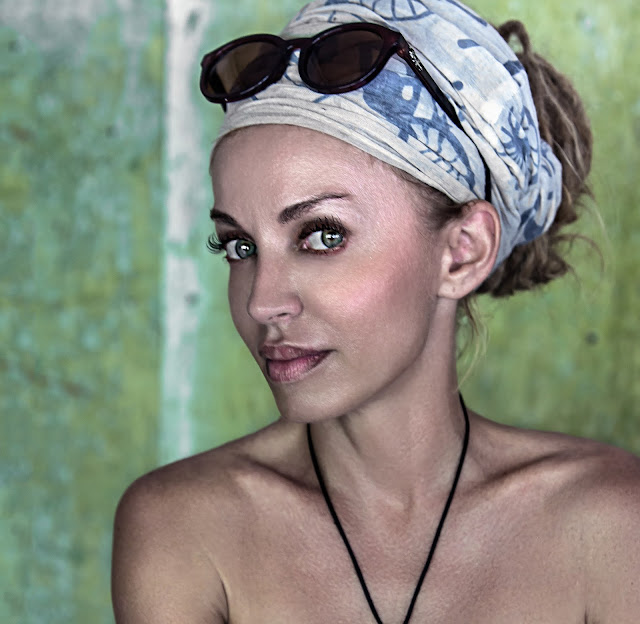Documentary photographer Aga Szydlik
Aga is a documentary photographer based in the USA and her work focuses mainly on documentary photography, conservation, exploration of heritage sites, indigenous tribes and their rituals. She actively supports human rights and conservation efforts. Aga’s assignments involve both freelance work and collaborations with various NGOs. We have conducted an interview with her.
What motivates you to focus your photography on conservation, exploration of heritage sites, indigenous tribes and their rituals?
Photography is a medium I use to communicate with a wider audience as it enables me to share my experiences and the beauty and struggles of various cultures from across our world. I'm a very curious and inquisitive person, I love the sense of adventure, exploration of the great unknown, hence venturing out into remote corners of the world feels very natural to me. Growing up, I was always reading books about expeditions and adventures in exotic places, as I grew up and begun to travel I was able to experience a lot of them firsthand, both the beauty of their culture and the hardship most indigenous people experience.
I find ceremonies and rituals practiced by tribes mysterious and fascinating, animistic beliefs place great importance on being close to nature, both fauna, and flora. Indigenous people believe that spirit lives in everything: nature, rocks, rivers, and animals, hence they respect and conserve natural resources. Indigenous people are much better guardians of our planet than the rest of us, practices such as logging, emissions, and industrialization destroy not only ecology and the natural habitat of animals but also the harmony of life for many tribes and giving them a chance to "speak" through my photography has always been my goal.
How and when did you start collaborating with NGOs?
I worked with various communities when I lived in South East Asia, however, my work with NGOs started in 2015 when I was asked to document education and prevention of HIV in rural Tanzania on behalf of Photographers without Borders. It was a very important topic for me both as a scientist and a photographer. My professional background as a scientist involves research and development of various biotherapeutics for human health and novel ways we can provide crop protection using biological solutions, which are both safe for the environment and affordable for farmers across the world, especially those living in developing countries. Currently, my documentary work involves the engagement of local communities and organizations across different countries with a focus on human health, conservation, cultural preservation, and displacement.
Why should photography be evocative and revolutionary?
I have always been fascinated by the brilliance of Salvador Dalí and Pablo Picasso, both artists rebelled against modern conventions inventing new styles and forever changing the way we see art. One will never mistake works of Capa for Lange, Picasso for Dalí, but is this true for the millions of images that overstimulate us on daily bases? I love analog and alternative photography, alt editing and printing techniques. The individual style which stands out from the rest, a task which is very difficult as it requires incredible bravery from the artist. It's much easier to blend than to go against the flow ......
What do you consider powerful and meaningful? What should a photograph like this convey?
To quote the great Pablo Picasso “Painting is a blind man’s profession. He paints not what he sees, but what he feels, what he tells himself about what he has seen.” applies not only to painting but to photography as well.
Powerful photography captures the raw emotions of the scene and transcends them into a viewer. Powerful photos don't need a caption or explanation, they can stand alone, penetrating our mind and soul, lingering and stimulating us to think deeper and to question the nature of the work. Powerful photography conveys a very clear message by bringing a photographer's interest to the surface and engaging the viewer into the action.
What made you choose to be a documentary photographer?
A picture is worth a thousand words so by using my lenses I aim to highlight current issues our society is facing, give voice to those vulnerable and underprivileged, bringing much-needed help and hopefully making a positive change in their lives. I document the beauty of ordinary and extraordinary people and dynamic cultural changes occurring in our world. Documentary photography is about seeing and capturing the profound truth, it's the lack of distortions, it's capturing emotions, connections between people and their surroundings. It's the greatness of photography by Robert Capa, Henri Cartier-Bresson, Dorothea Lange or Sebastião Salgado to name a few great masters who shaped the way I think about documentary photography. I love long term projects, I love the depth documentary photography allows me to experience, the magic of human connection and unconditional acceptance into their society.
More info:
Website: http://www.agalphotography.com
Instagram: https://www.instagram.com/aga_szydlik
Twitter: https://twitter.com/SzydlikAga








